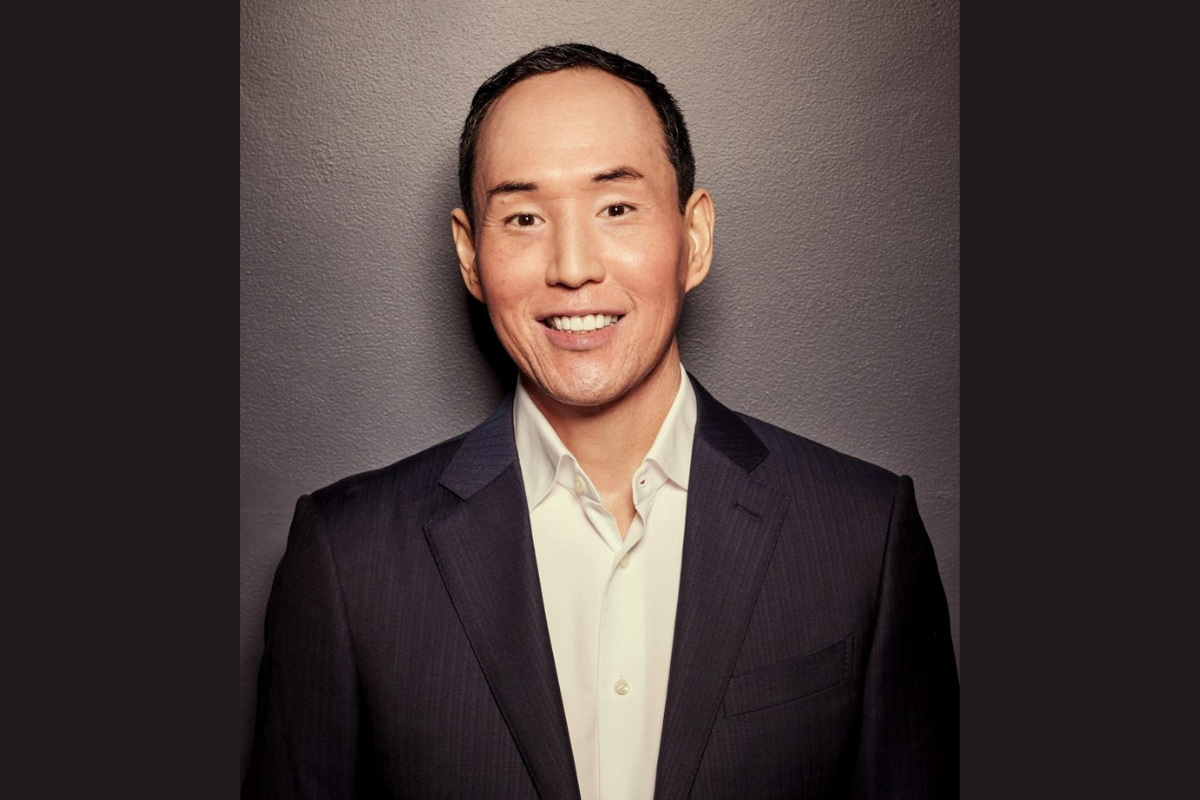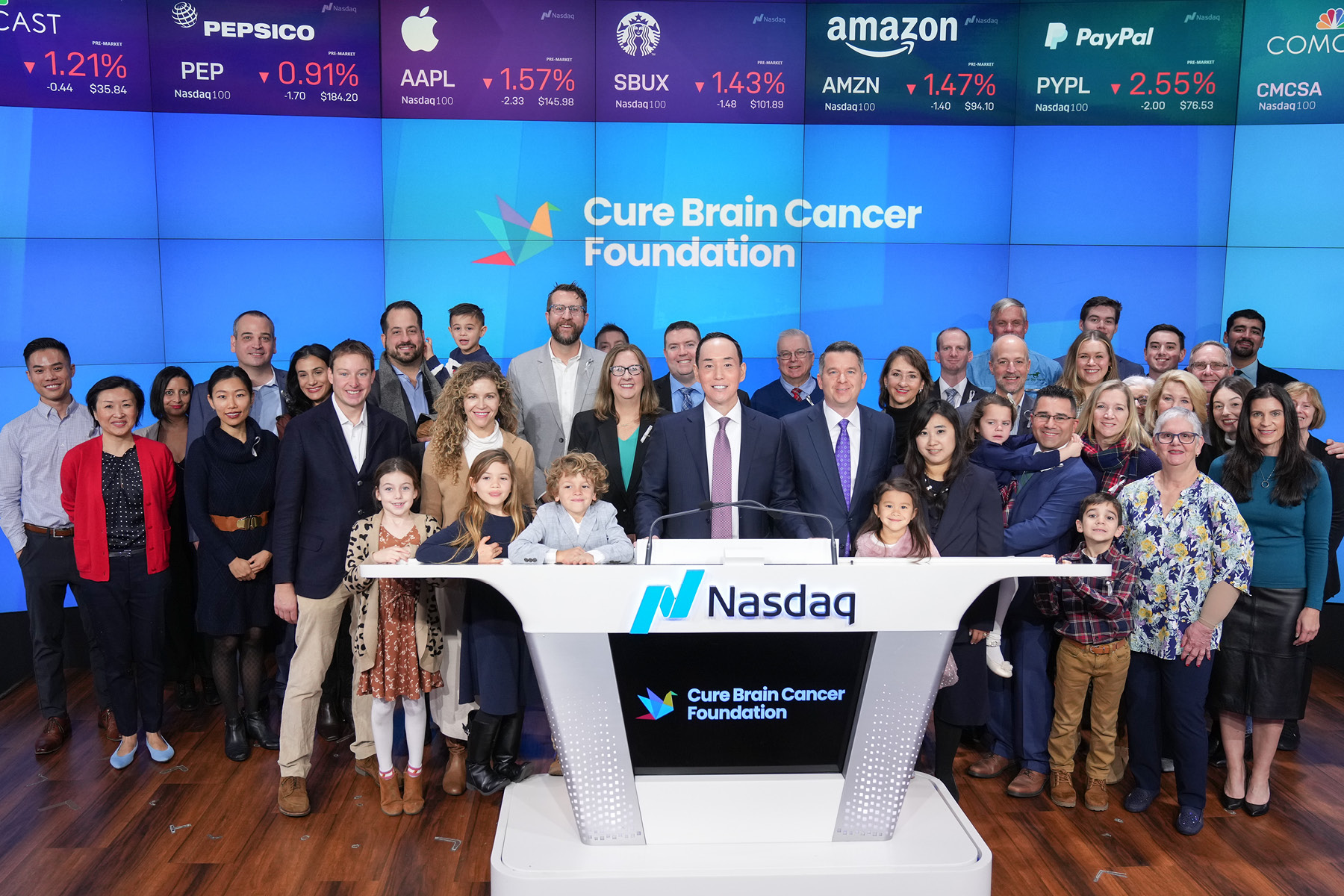Change in Charge: Lance Kawaguchi
Lance Kawaguchi traded a career in banking for the pursuit of meaningful charity. He found it in Australia’s Cure Brain Cancer Foundation, which he’s transformed into a powerful force for good.
The appointment of a new board chair by the Glioblastoma Research Organization, Kim’s Hope and the Kendall Nicole Eich Foundation perhaps seem like just another announcement to outsiders. After all, board members seem to come and go all the time through the revolving doors of not-for-profits.

These particular appointments, however, have significant ramifications for those suffering from glioblastoma, a cancer that attacks the brain and spine. That new Chair is Lance Kawaguchi, CEO of Cure Brain Cancer Foundation, and the reason for the excitement surrounding his new roles is simple: Kawaguchi gets results.
"I always try to focus on the process, not the goal," he tells The CEO Magazine. "And I don’t like to do things just for lip service. I’d just rather do it versus talking about doing it."
A former banker, Kawaguchi got his start in the oil and gas sector. "My grandfather opened one of the first petrol stations on Oahu in Hawaii," he recalls. "Every year he’d go to California for an annual shareholder meeting and a refinery tour, and he would always take me. I knew everything about the oil and gas industry from four years old."

I’d learned from my grandfather the importance of understanding your community, understanding relationships. At the end of the day, that’s the most important thing.
At the dawn of his career in investment banking, Kawaguchi bucked his contemporaries’ trend of going into tech.
"I spent 20-plus years focusing on oil and gas throughout the world," he says. "Both banking and fossil fuels are sectors where relationships matter, and I’d learned from my grandfather the importance of understanding your community, understanding relationships. At the end of the day, that’s the most important thing."

Giving it his all
After his grandfather died from stomach cancer in 1991, Kawaguchi pushed himself even harder to succeed, relying on the work ethic he’d honed in his early years.
"For me, it’s always been about outworking people," he reveals. "If co-workers stayed two days in the office without going home, I’d stay five. And as a younger person and a minority, people would tell me I couldn’t make it. There was a lot of explicit bias. But if you tell me I’m not going to be successful, then I’m going to do it even more."
Naysayers abounded in 2020, when Kawaguchi was presented with the opportunity to join the Cure Brain Cancer Foundation in Australia. He’d left banking in 2016 as a promise to his mother, who died from cancer that year. He pledged to honor her memory by giving back via social impact.
I believe that a no or negativity is just a delayed yes. You just haven’t seen the value proposition.
Ultimately, he had a shortlist of five charities where he felt he could make a difference, but that list didn’t include the Cure Brain Cancer Foundation. "But people kept on telling me about it," he remembers.
The charity had endured some challenges over the years, but none that gave Kawaguchi pause. "My colleagues called me and said, ‘This one’s perfect for you’. I said, ‘Wow, this would be a great challenge. This is awesome’."
In December 2020, amid the COVID-19 pandemic, Kawaguchi arrived in locked-down Sydney prepared to take on the ultimate challenge.
"I knew I could do it, but my wife thought it was impossible," he says.
Starting from scratch
Kawaguchi had left behind a pristine office in London’s Canary Wharf. In Sydney he found something of a downgrade.
"My first day, I asked, ‘So where’s our office?’ They said, ‘Oh, we don’t have an office’. I took my first six months of video meetings at a Vietnamese restaurant," he laughs. "They loved me because I gave them so much business, they gave me free pho. They were sad when I finally did move into an office."
However, not everyone within Kawaguchi’s new organization was immediately won over by him, and he faced some opposition during his first six months.
"I had some people who were resistant, and some who even expressed their frustration in unpleasant ways," he admits. "It was brutal. But I’d tell them, ‘Just trust me. Don’t listen to what I say, watch what I do’. Failure’s not an option for me."
I have my health, and I just want to make sure that whatever time I have left on this Earth, I can make an impact.
For Kawaguchi, there are only two options.
"I either start organizations, or I turn them around," he reflects. "For me, that’s exciting. What I saw in all the people who supposedly hated us was that if I could redirect that passion, they’d be our biggest supporters. And I’m relentless like that. I believe that a no or negativity is just a delayed yes. You just haven’t seen the value proposition."
And so he went to work. Kawaguchi began bringing in top scientific minds from around the world to join the Cure Brain Cancer Foundation’s Scientific Advisory Committee. Soon after, he committed to delivering GBM AGILE, a long-delayed clinical trial aimed at drastically improving outcomes for glioblastoma patients.
"The Australian government had promised it since 2013. We were able to bring it," he says. "And then I said I’m going to do the world’s largest brain cancer accelerator, worth A$2 million [US$1.3 million]. And we did it. So slowly people started saying, ‘OK, I guess he’s actually delivering on his promises’."
The paradigm had shifted from people asking if he could do it to what more he could do.
"They’d say, ‘We want to see more early career research fellowships’. Boom, we did that. ‘We want to see more mid-career fellowships.’ Boom, we did the first ever. And this is with nine employees. It’s really about getting what’s important to the community as quickly as possible."
Reversal of fortunes
Kawaguchi’s transformational style of leadership has dramatically reversed the Cure Brain Cancer Foundation’s fortunes within a short period of time. He has clearly demonstrated his ability to design and execute strategies quickly and efficiently in order to create positive impact for the community he serves.
Under his leadership, the Cure Brain Cancer Foundation has gone from strength to strength, and is now Australia’s leading brain cancer not-for-profit.
Negative tabloid headlines have been replaced by ones heralding Kawaguchi’s successes, such as winning The CEO Magazine’s Not-for-Profit Executive of the Year Award in 2022, or joining 50 cancer patients and survivors to ring the Nasdaq opening bell in New York in December.
I want to show that one charity in Australia can bring the world together.
"This was the first time ever that an Australian charity had done so," he says. "No-one believed me when I said we’d be in Times Square ringing that bell. It was one of my proudest moments."
Another is on the horizon. In December, Kawaguchi will attempt the first trek to the South Pole to raise funds and awareness for brain cancer research – not just for the Cure Brain Cancer Foundation, but also up to 20 other charities globally.
"People told me, ‘You’re old, Lance. You’re not going to make it’. I said, ‘Cool story’," he jokes.
"There’s never been a brain cancer charity CEO trek to the the South Pole and put the flag in the ground to signify the need for more awareness, research and funding for brain cancer. I don’t know if I’m going to make it, but I don’t care. My philosophy is just do it."
Global impact
Kawaguchi hand-picked the other charities he will represent on the trek to very specific criteria.
"The majority are run either by a chair or CEO that’s a woman, which is important to me as I’m a huge believer and advocate for diversity and inclusion," he explains.
"I want to show that one charity in Australia can bring the world together, can have a significant impact globally. And by leading by example and going out of my comfort zone, it’s possible to help multiple charities along the way achieve the same net result."
If this cavalcade of achievements and successes takes a toll, it’s hard to tell from Kawaguchi’s permanently upbeat and energetic demeanor. He admits, however, that there are tough times.
"Some days I wake up and I feel exhausted. But then I try to reframe it by saying, ‘What if I had brain cancer?’ That’s where my drive comes from," he says.
Today, that drive continues. As Chair of the boards for Glioblastoma Research Organization, Kim’s Hope and the Kendall Nicole Eich Foundation, Kawaguchi hopes his laser focus will accelerate funding for crucial research.
"The first case of cancer was 5,000 years ago. We still have no cure," he points out. "I’ve counted that 65 percent of my family has died from cancer. That’s a big number. So I’m very fortunate. I have my health, and I just want to make sure that whatever time I have left on this Earth, I can make an impact."